Rio Olympics 2016: Team GB sevens selection worries ex-Scots skipper
- Published
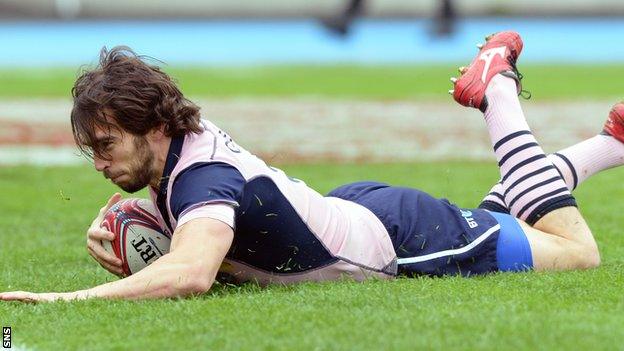
Colin Gregor represented Scotland at over 50 tournaments on the Sevens World Series
A year or two on rugby's Sevens World Series, enthuses Colin Gregor, the former Scotland captain and veteran of over 50 tournaments, is a priceless apprenticeship for a young professional.
And until relatively recently, that's just about all it was - a round-the-world secondment to focus the mind, sharpen the skills and strengthen the lungs for the fifteen-a-side game. Not to mention fortify the liver at the booze-ups for which the circuit is notorious.
For the audience, it was frenetic, but fleeting entertainment. The domain of the super-fit and the super-fast. Bite-sized matches, bursting with chaos and flair, but fading away with the ensuing hangover.
No longer, though, is sevens rugby's also-ran. Since booking its berth in Rio, representing the sport on the Olympic stage for the first time in 92 years, the abbreviated game is booming.
No marquee in Team GB
Piloting Team GB in Brazil is Simon Amor, for years a World Series veteran for England, and now their head coach.
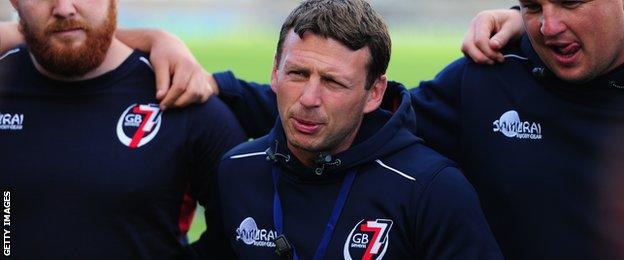
Simon Amor, Team GB's head coach
Amor's intention was to fill his boots with Six Nations heavyweights but the intricacies of international regulations and the physical pummelling wrought on these players over the season forced a rethink.
His squad is peppered with the Englishmen he knows and trusts, captained by Tom Mitchell. There are two Welshmen and two Scots. One of them, Mark Bennett, is the sole player befitting so-called marquee status. The other, Mark Robertson, is a full-time sevens international.
On that front, perhaps, there is a collective stab of regret.
Consider, for instance, a Team GB bristling with the ballast of Welsh winger, George North, the twinkling feet of England's Jack Nowell, or the swagger of Stuart Hogg, Scotland's rapier.
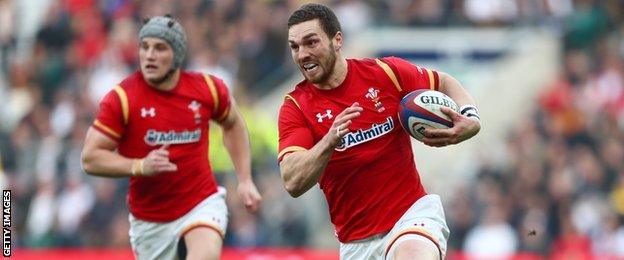
Illustrious players from the fifteens game, like George North of Wales, are not in Team GB
But the leap from fifteens to sevens has claimed several major casualties - Springbok Bryan Habana, third on the all-time list of Test try-scorers, and Australian playmaker Quade Cooper were both deemed surplus to requirements for Rio.
"I think that shows how advanced sevens is as a game, and the conditioning the sevens guys have gone through to get to that level," says Gregor.
"The top fifteens players, you would expect, could just cruise into a sevens team. Ideally for his training squad, Simon Amor would've liked a few more high-profile guys.
"But it would've been difficult to drop them in at the end of May, have a six or eight week training period, and be up to speed for the Olympics.
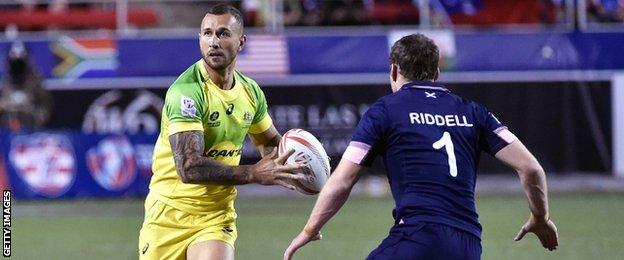
The Australian maestro Quade Cooper failed to win selection for Rio
"It is a disappointment - what you hope is, the Olympics makes some superstars out of the sevens players in their own right, so you don't need to rely on fifteens guys to get more appeal or publicity."
'Scotland were the form home nation'
Gregor reckons the Scottish operation he helped mould as unpaid devotee, canny playmaker and eventually veteran skipper could use a little more TLC, a few extra players to jostle for selection - there's a feeling in the squad, he says, that if you're fit, you'll play.
The Scottish Rugby Union only instated a full-time enterprise in 2011 and considered revoking that status last year when Glasgow was discarded as a World Series venue.
While the enthralling maiden Series victory in London two months ago may have reddened a face or two in the Murrayfield corridors of power, it failed to move Amor sufficiently to alter his selection.
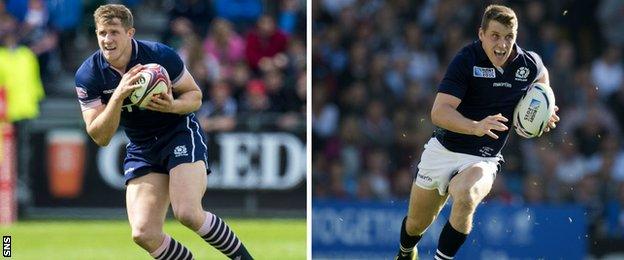
Mark Robertson and Mark Bennett are the only Scots in Team GB
Gregor's disappointment for former team-mates is overshadowed by a gnawing concern at the broader complexion of Team GB.
"I thought Scotland were the form home nation at the tail-end of the World Series," he says. "All the feedback from training from people I've spoken to, the Scottish guys all acquitted themselves very well.
"It's basically come down to Simon Amor going with what he knows, and even if players aren't playing well, he's thought, well, I know they can play well, and he's backing them on that element of trust.
"He's gone with a lot of individuals - I don't think there's a lot of glue. That's where someone like (Scotland stalwart) Scott Riddell would come in, because he would facilitate others.
"You need to have these X-factor players, but you can't have all of them, you need a blend."
The power of sevens
Sevens is faster than the fifteen-a-side format. More tries are scored; more 'wow' moments.
By and large, it removes the perplexing maelstrom of rucks and mauls and scrummages that can baffle even the most seasoned observers.
Fewer international disparities exist - teams like Kenya, Canada and the USA are regularly successful even against the illustrious heartlands of the game.
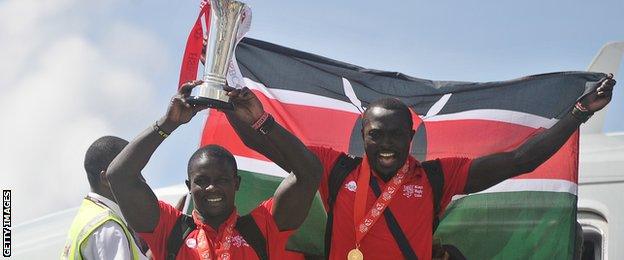
Nations like Kenya have emerged as powerful players on the international circuit
Sevens is proliferating across the world, gobbling up athletes from all manner of backgrounds. Sprinters, netballers, American footballers - they're all pursuing their Olympic dreams on the rugby pitch in Rio.
Now the game is the beneficiary of huge global exposure.
So, could what was once a lager-sodden sideshow one day upstage its storied big brother as rugby's main event?
"You've got two different markets," considers Gregor. "You've got the traditional rugby strongholds - New Zealand, Australia, South Africa, Britain, France - then you've got the rest of the world.
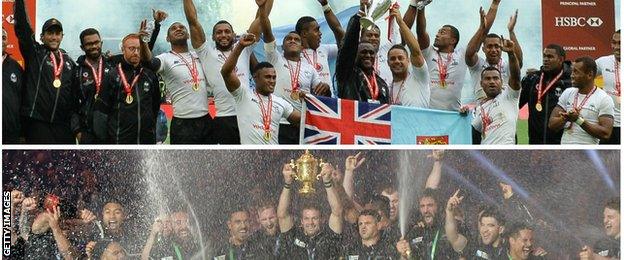
Fiji have won back-to-back Sevens World Series titles, while New Zealand lifted last year's Rugby World Cup
"It's far easier for a team to become successful at sevens than fifteens - mainly around how technical a game it is, and to get all that expertise takes a number of years and a lot of resources.
"Whereas if you've got a group of fit individuals that you can up-skill a bit, that you can get working as a team, then you've got not far off the basis of a successful sevens team.
"It then depends on what World Rugby wants: do they want the traditional fifteen-a-side game that's dominated by a fairly small number of countries, or do they want this proper, international, all-action, anyone-can-win-a-tournament kind of game?
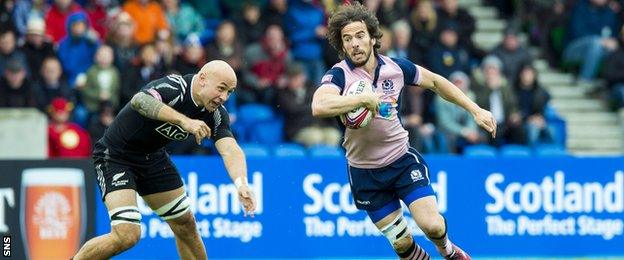
Gregor believes sevens could be the key to growing rugby across the world
"I think for rugby to grow worldwide, sevens is the way to do it. The way the world is now, everything's about shorter times, it's about being immediately engaged.
"The problem with sevens is, days are too long - you can't have an eight-hour day for a tournament, you need to whittle that right down, so you've got fifteen-minute games, but you're only there for a couple of hours each day.
"If they can find a package like that, I think that's the one that will really take off."
- Published8 August 2016
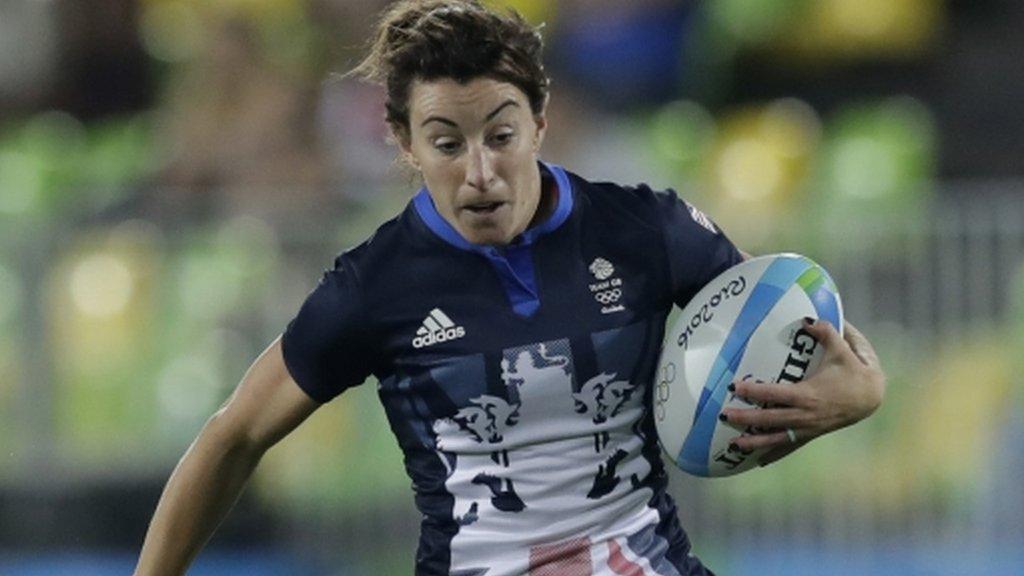
- Published28 June 2016
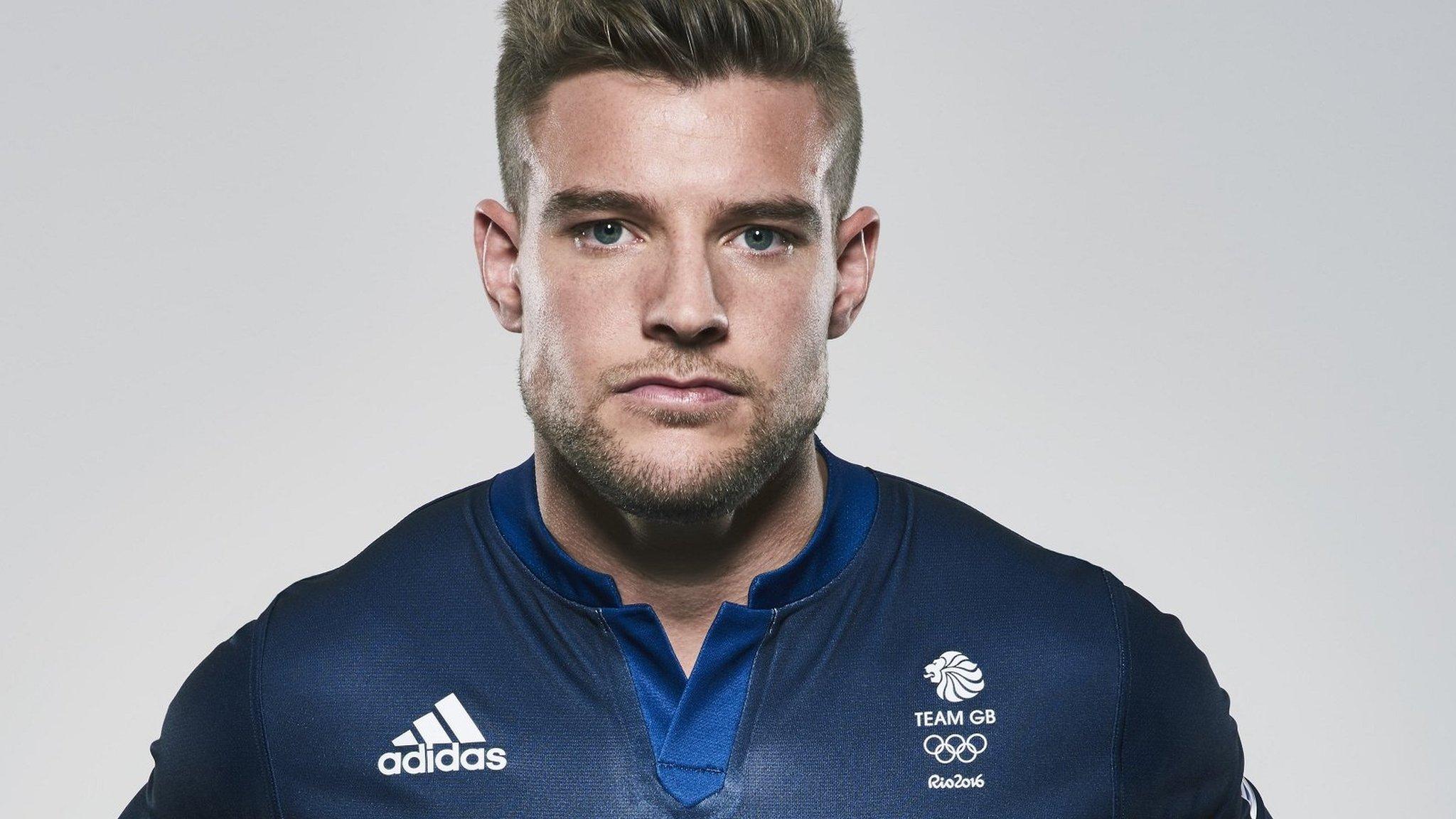
- Published28 July 2016
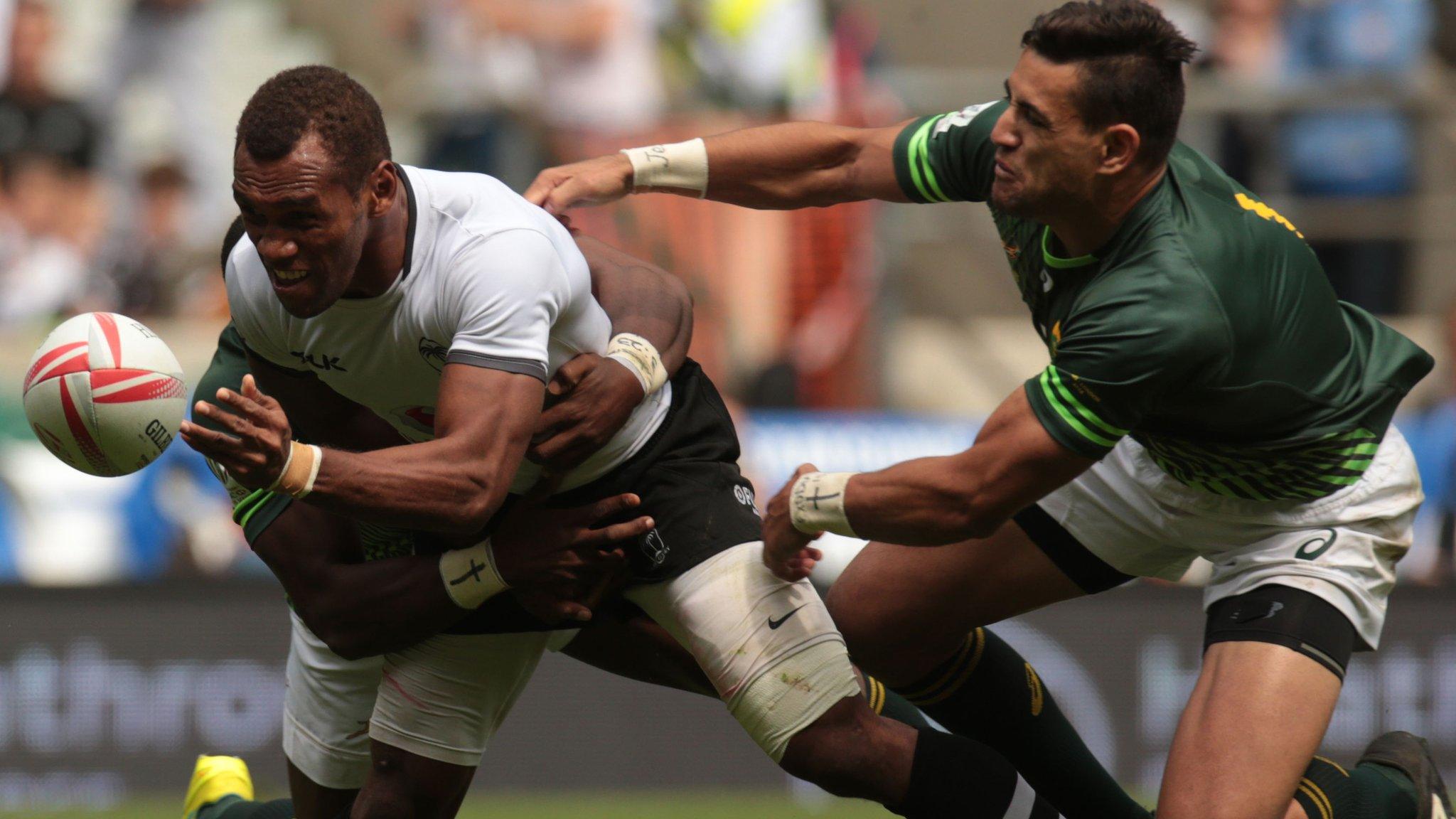
- Published19 July 2016
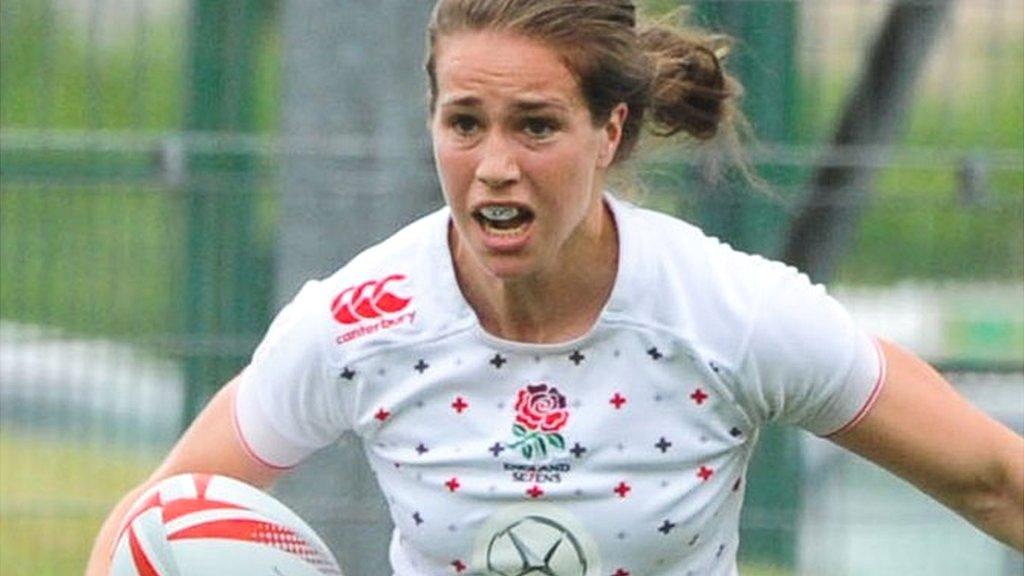
- Published14 September 2016
